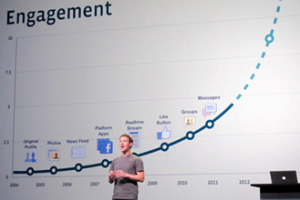by Gord Hotchkiss, Featured Contributor, August 2, 2016
Fellow Spinner Cory Treffiletti told you last week that data without context is noise.
Absolutely right.
I want to continue that conversation, because it’s an important one. It’s all about context. So let’s talk a little more about context — specifically, how we decide what makes up that context.
You might have seen or heard the hubbub that emerged around a tweet from Neil Degrasse Tyson a month ago: “Earth needs a virtual country: #Rationalia, with a one-line Constitution: All policy shall be based on the weight of evidence.”
Nice thought, but it ignited a social media shit-storm. Which was entirely predictable, because we don’t want to be rational. We want to be human. Did 79 episodes of “Star Trek” teach us nothing?
The biggest beef against #Rationalia was that evidence is typically in the eyes of the beholder. It’s all a matter of context. I’m guessing that the policies that come from evidence in the hands of Republicans will not bear much resemblance to policies that come from the evidence of Democrats. The evidence could be the same but the context is different, because Democrats and Republicans think differently.
As Cory said: Evidence without context is just noise. And our context is only marginally based on evidence. And that’s why #Rationalia — as intellectually attractive as it might be — won’t work.
We as humans understand the world through something called sense-making. This is the process we use to build context. In 2006, psychologist Gary Klein shed new light on how we make sense of the world. We start with a frame that captures our current understanding of the situation and, depending on the evidence presented to us, we decide whether to elaborate our frame or discard it and create a new frame. So, sense-making is really an iterative loop that is constantly using our current frame as a reference point.
But here’s the thing. What we consider evidence depends on the frame we already have in place. It’s the filter that determines what data we pay attention to. And much as Neil Degrasse Tyson would like the governments of the world to be totally unbiased in the filtering of evidence, that dog just won’t hunt. It can’t — because we can’t consider data without some context to put it in.
Perhaps someday artificial intelligence will advance to the point where it can pull unbiased context out of random data. Maybe computers will be able to do what we’re unable to: make sense of the noise without assuming a preexisting frame. But we’re not there yet. And even if we were, we would simply look at the conclusions of the computer and decide whether we agree with them or not. As long as humans are in charge, there will always be a biased filter in place.
So back to Cory’s column. If context is so important, think about where that context is coming from. Who is defining the context, and what frame are they operating from? That in turn will define what data you consider and how you consider it.
Perhaps the most important decision before considering data is to be totally clear about what the goal is. Goals, together with experience, form the underpinning of beliefs. Frames are then built on those beliefs. Context comes from those frames. And context is the filter we apply to evidence.
MediaPost.com: Search Marketing Daily
(16)





